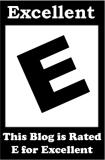Book Review: Blood Matters by Masha Gessen
 What will you do when it is feasible to obtain your own genotype? Will you take advantage of the possibility to discover as much about yourself as possible? Or do you not want to know? Is ignorance truly bliss?
What will you do when it is feasible to obtain your own genotype? Will you take advantage of the possibility to discover as much about yourself as possible? Or do you not want to know? Is ignorance truly bliss?
Masha Gessen, author of Blood Matters, gives us a glimpse of the future that awaits us when human genomic sequencing becomes ubiquitous. As an Ashkenazi Jew, Gessen is prone to genetic diseases such as breast/ovarian cancer, Cystic Fibrosis and Tay Sachs. It is believed that a combination of founder effect and inbreeding has burdened the gene pool of the Ashkenazi population with these autosomal recessive disorders.
Eleven years after her mother died of breast/ovarian cancer, Gessen had her own genes tested to see if she, too, risked breast cancer. The results revealed that she was a BRCA1 carrier. As such, she suffered an 85 percent chance of breast cancer and a 50 percent chance of ovarian cancer.)
Gessen then had to make the unenviable decision whether to have her ovaries and breasts preemptively removed. It's hard for me to imagine such a decision, but it must have been terrifying. Her genetic counselors advised the oophorectomy on the basis that breast cancer is easier to detect and treat.
But Gessen balked. Oophorectomies are associated with cognitive issues, depression, osteoporosis, and heart disease. “I politely suggested I could just shoot myself tomorrow: That would prevent my death from cancer with a 100 percent probability,” she writes.
Gessen's book does a wonderful job of illuminating the issues we face when we learn more about ourselves and our genes. She points out that the moral, medical, ethical, educational, personal foundations for dealing with this new knowledge are not yet in place.
My only complaint is that Gessen tries to do too much. The book wanders off topic frequently, and the potency of the book is diluted. What could have been a sharp, vivid exposition on a horrible personal choice is wasted on meanderings on Jewish matchmaking, Dr. Holmes Morton and other digressions.
What, then, should one do when faced with the possibility of obtaining your genetic predispositions? I am of the opinion that Knowledge is Power. Gessen is now, if she wasn't already, hyperaware of the chance of cancer and can take preemptive action or alter her behavior.
The first chapter is available at the NY Times. The book was developed from a series of articles at Slate.











My 11 year old son is adopted. We know essentially nothing about his biological parents. So when he's older, i'm hoping he'll be able to find out what his health risks might be. I hope he'll have the courage to find out, and the strength of will to do something about it.
ReplyDeletePerhaps it's because I'm liable to wander off on a tangent myself, but I quite enjoyed the meanderings about Jewish matchmaking- in any case, the book definitely solidified my interest in medical genetics!
ReplyDelete